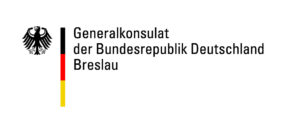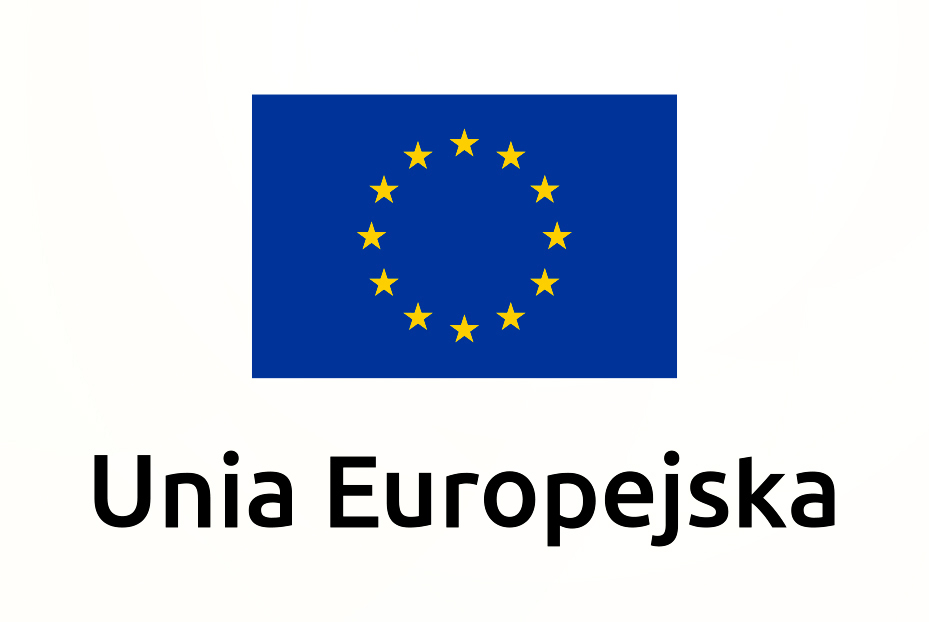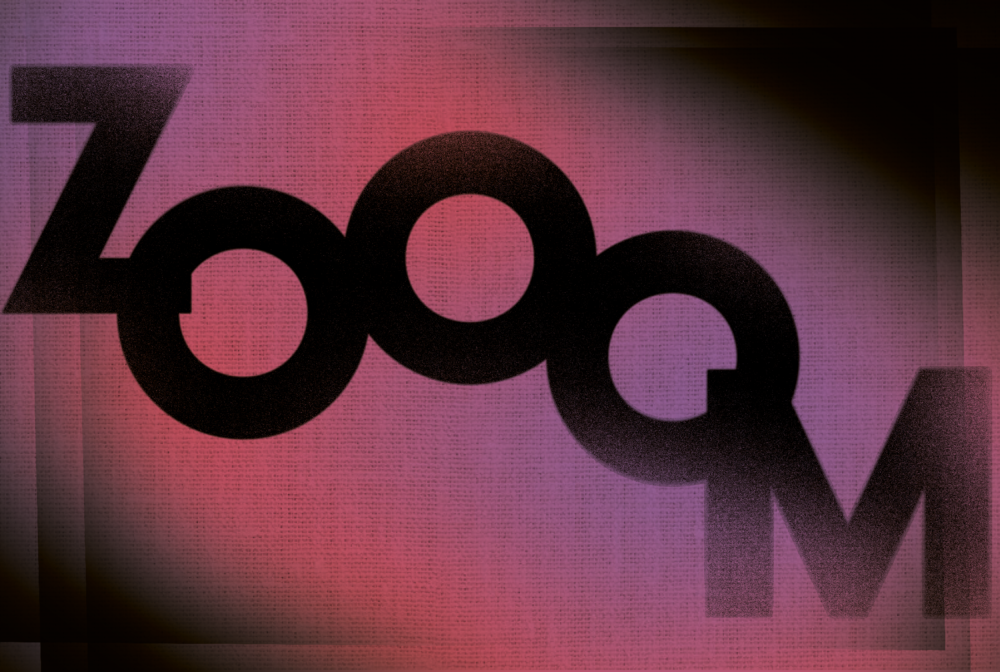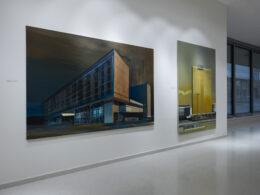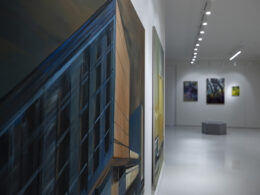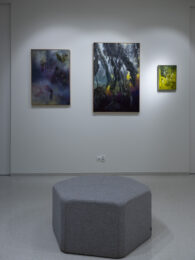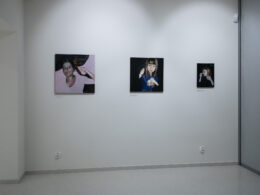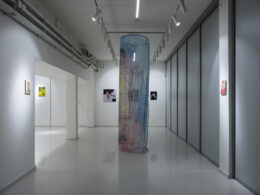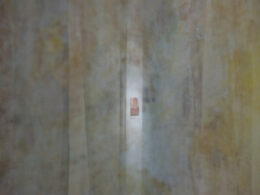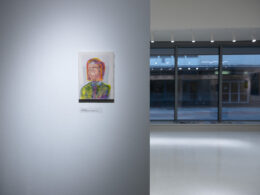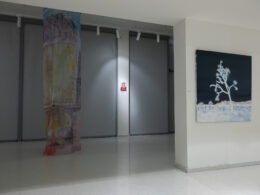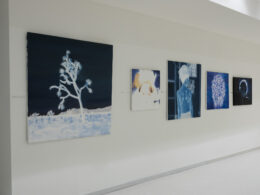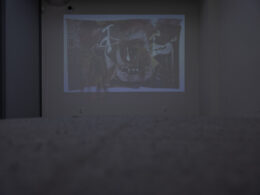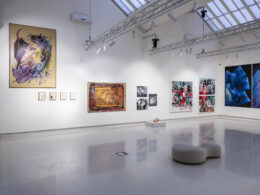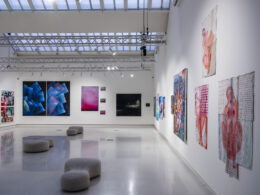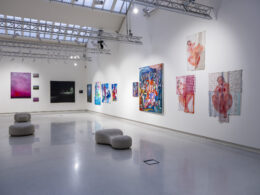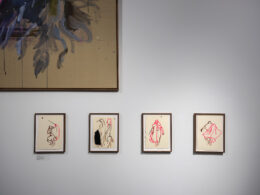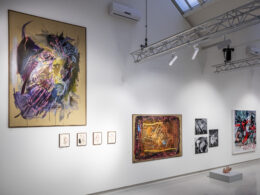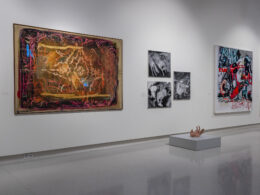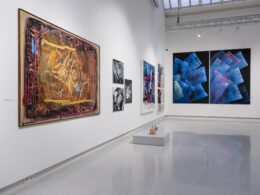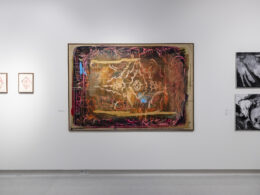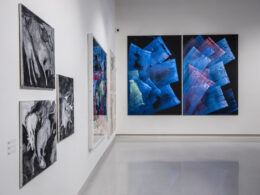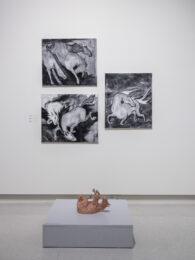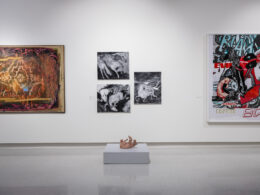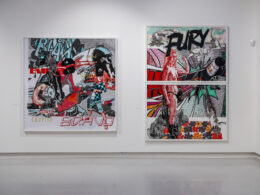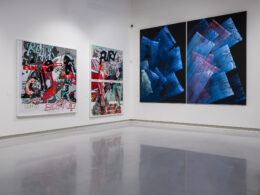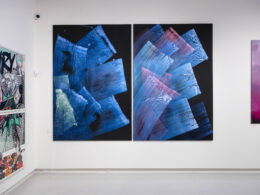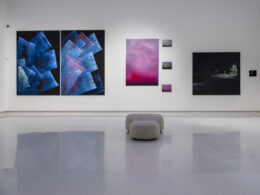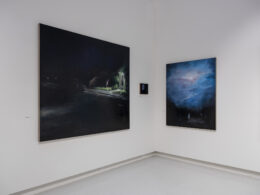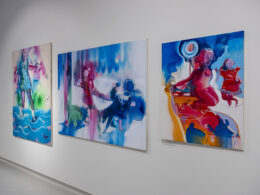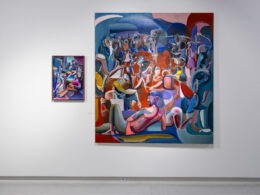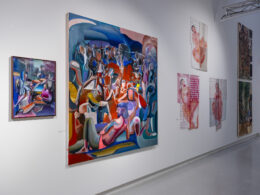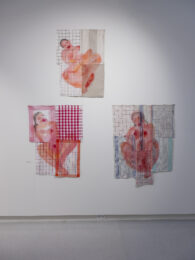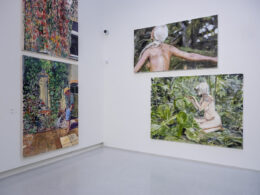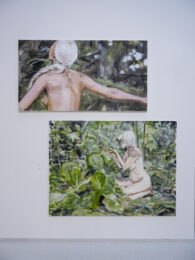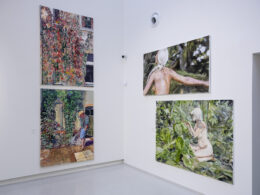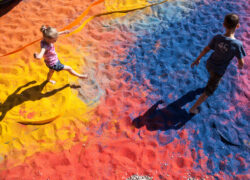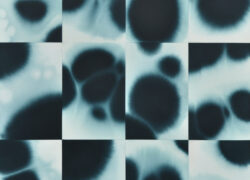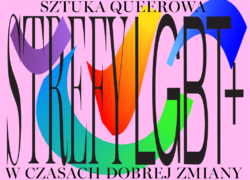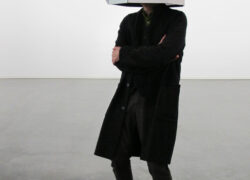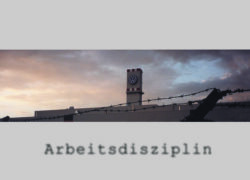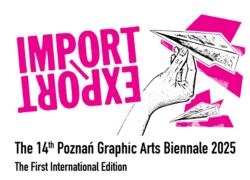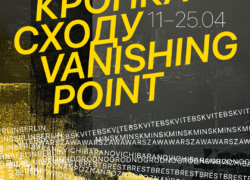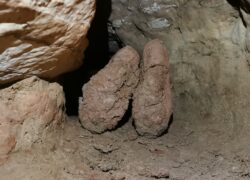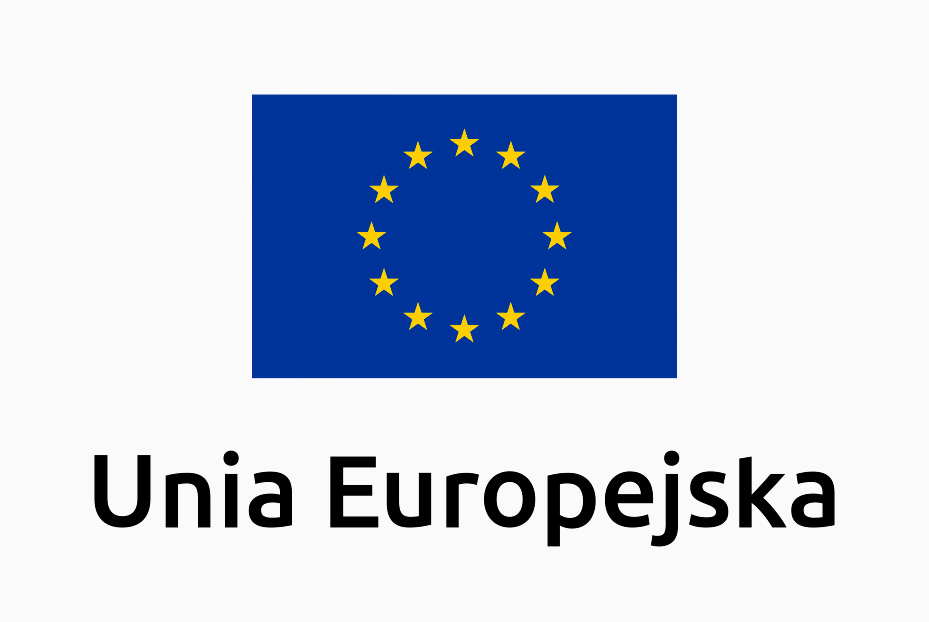A few years ago painters from a female group, or more precisely an artistic network known as the MalerinnenNetzWerk Berlin-Leipzig (MNW), accepted my invitation to hold an exhibition at Arsenał Municipal Gallery to introduce contemporary German painting with feminist overtones to audiences from Poznań and beyond.
This is how the German artists introduce themselves on their website: “MalerinnenNetzWerk Berlin-Leipzig (MNW) is a platform for contemporary painting that aims to increase the visibility of female artists through the organisation of group exhibitions and joint publications, as well as to strengthen connections and networks. In particular, MNW is at home within the area of painting, although it remains characteristically open to other experimental artistic concepts. Besides exhibitions and collaboration with guest female artists and curators, professional networking between the female painters is equally central to the group’s work. Regular meetings are held in the studios as opportunities to discuss works and to provide mutual support. The female artists pursue their own careers beyond MNW itself but operate as a group several times each year within the framework of the network. The female artists within MNW have shown their works in varying constellations in art museums, galleries, and other exhibition spaces since autumn 2015. Several publications has already been released about the network”.
Driven by the idea of feminist networking, the German artists have suggested inviting several Polish women painters to a joint exhibition as the crowning achievement of their on-line studio meetings of the past few years.
The German side is represented by: Tobia König, Kathrin Landa, Verena Landau, Justine Otto, Cornelia Renz, Eva Schwab, Anija Seedler, Tanja Selzer, Bettina Sellmann, Anke Völk, Nina K. Jurk, and Isabelle Dutoit. The Polish artists include Maria Kiesner, Julia Medyńska, Malwina Niespodziewana, and Joanna Pawlik. Plans are underway for the next instalment of the exhibition in Germany; this time Polish women artists will outnumber their German colleagues, in matching proportions.
The online meetings on ZOOM have always revolved around women, their daily lives, their views, and their art. All the women painters offered one another a kind of platform of support and shared presence, even during the pandemic which had put a halt to earlier personal meetings in actual studio spaces.
One frequent motif of the paintings presented in Poznań is the human figure, the body as an object and allusion to female identity and a particular carrier of stories, as in the paintings by Bettina Sellmann, Julia Medyńska, Malwina Niespodziewana, Eva Schwab, Verena Landau, Kathrin Landa, Joanna Pawlik, and Tanja Selzer. The realism of figurative painting collides with Justine Otto’s psychedelic genre scenes.
While the artists use a variety of techniques and aesthetics, they are all keen to emphasise the female point of view. The works on show include paintings that are fully immersed in the everyday, such as Maria Kiesner’s portraits of real existing buildings as well as portray allegorical, almost fairy-tale-like and dark stories exemplified by the paintings of Anija Seedler and Cornelia Renz. We find here abstraction, too, both pure, as in Anke Völk’s art, and illusory, directing the viewer to the idea of landscape, as in Nina K. Jurk. In their turn, Isabelle Dutoit and Tobia König expand the human reality with figures from the animal kingdom.
The title, Zooom, is a reference to both the manner of looking, to the close-up view as in the camera lens, and to the meetings on the ZOOM platform (spelled with two O’s) we have attended for a couple of years, preparing the Poznań show.
Personal is Political reflects a time in which there is no escaping the wider contexts. The female body, the age-old subject of painting, which also appears in the work of many of the women-artists on show, has for years been a training ground for partisan battles. The existence of the individual in the modern world is no longer a private matter, just like nature is no longer neutral because it evokes climate change and the risks addressed in a public forum by various factions. There are examples aplenty, as today everything is political.
Bogna Błażewicz
artists representing the German Malerinnennetzwerk Berlin-Leipzig group: Tobia König, Kathrin Landa, Verena Landau, Justine Otto, Cornelia Renz, Eva Schwab, Anija Seedler, Tanja Selzer Bettina Sellmann, Anke Völk, Nina K. Jurk, Isabelle Dutoit
Polish artists: Maria Kiesner, Julia Medyńska, Malwina Niespodziewana, Joanna Pawlik
curator: Bogna Błażewicz
patronage:
